Las relaciones son difíciles, pero a menudo esperamos que sean el tipo de historias de amor que vemos en las novelas, películas o que escuchamos en canciones de amor. Cuando nuestra relación no está a la altura, nos decepcionamos y, a menudo, nos damos por vencidos sin realmente intentar formar una buena relacion con expectativas mas realistas. Muchos llegan a pensar que cometieron un error al elegir a su pareja y sienten que si la relación realmente fuera a funcionar, no sería tan difícil. Algunos se obligan a hacer que la relación "funcione" debido a los valores culturales, religiosos o familiares y las presiones sociales y permanecen en una relación infeliz, sobreviviendo y sintiéndose atrapados, para evitar el ser juzgados por los demas o sentirse como un fracaso.
La realidad es que la mayoría de nosotros no crecimos aprendiendo a formar relaciones saludables y tenemos un concepto limitado de que las relaciones son buenas o malas. Sin embargo, hay algunas cosas que podemos hacer para mejorar nuestras habilidades de relación y hacer nuestra parte para convertirnos en la mejor pareja posible.
Primero, debemos reconocer nuestra responsabilidad y no quedarnos estancados culpando de todo a nuestra pareja, incluso aun cuando parezca que nuestra pareja tiene el problema. Lo más probable es que la pareja esté protestando con sus palabras o acciones sobre algo que podemos o no estar haciendo de manera inconsciente que los hace sentir inseguros o desconectados en la relación.
Segundo, debemos entender el problema. Si se trata de algo que está fuera de nuestro control solucionar, como si es algo que hizo otra persona, nuestra pareja puede estar simplemente buscando que reconozcamos y validemos su experiencia. Si se trata de un comportamiento que hacemos o no, o de establecer un límite con alguien que no parece respetar la relación o a nuestra pareja, entonces nuestra pareja puede necesitar tomemos acción para remediar la situacion, y requiere que trabajemos para crear un cambio.
Tercero, debemos sentir curiosidad y descubrir cuál piensa nuestra pareja que es la mejor solución. Si la pareja tiene una solución que requiere que ambos hagamos algo para encontrarnos a mitad del camino y parece justo, entonces puede que tengamos suerte y el problema puede no haber sido tan grande después de todo. O tal vez, puede implicar que solamente tu hagas algo que te parezca razonable, porque si fuera al revés, querrías eso de tu pareja... en este caso, también tienes suerte. Debes asegurarte de identificar tus propias opciones de solución antes de acercarte a tu pareja para que tu pareja no sienta que le estás pidiendo que haga todo el trabajo en la relación.
Cuando la comunicación en la relación se vuelve demasiado complicada o nos sentimos desconectados y parece que nada funciona, esto es cuando se necesita ayuda profesional si deseas salvar la relación. Las parejas que experimentan una falla importante en la comunicación o alcanzan un estado de desconexión constante probablemente crearon una crisis por haber evitado enfrentar una serie de problemas que se fueron acumulando. A veces esto sucede cuando una pareja sufre de ansiedad, depresión o no se siente emocionalmente estable debido a haber experimentado un evento traumático o la pérdida de alguien o algo significativo; en estos casos, la consejeria de pareja puede ser realmente útil para la pareja que necesita aprender cómo pedir ayuda y separar su lucha interna de la realidad de la relación y para que la otra pareja tenga apoyo para saber como apoyar a su pareja.
NOTA IMPORTANTE: Las parejas que han experimentado violencia o amenazas de violencia en la relación no se consideran apropiadas para recibir consejeria de pareja. La consejeria de pareja requiere un cierto nivel de seguridad emocional para que ambos expresen abiertamente sus pensamientos y emociones sobre la relación sin correr el riesgo de sufrir daños físicos, psicológicos o emocionales. En estos casos, primero se recomienda consejeria individual para ambos. En algunos casos, el consejero aceptará trabajar con una pareja solo si cada persona tiene un consejero individual, la pareja violenta reconoce su problema y está motivado a cambiar y ambas personas acuerdan firmar un contrato de no violencia y un plan de seguridad.
COSAS A TENER EN CUENTA
EN LA BUSQUEDA DE CONSEJERIA DE PAREJAS
CONFIDENCIALIDAD: Los consejeros que tienen licencia o trabajan bajo la licencia de un supervisor clínico están regulados por la junta de gobierno de su estado y entre las reglas legales y éticas que deben seguir, la confidencialidad es una de ellas. Las excepciones a la confidencialidad (situaciones en las que un consejero tiene que romper la confidencialidad y notificar a las autoridades) incluyen situaciones en las que el cliente es peligroso para sí mismo u otra persona o casos de sospecha de abuso o negligencia infantil, o abuso de un adulto dependiente con una discapacidad o mayor de 65 años de edad.
COMPETENCIA CULTURAL: Siempre es mejor trabajar con un consejero que entienda nuestro trasfondo cultural. Esto no significa que trabajar con alguien que no es parte de tu cultura esté mal. Solo quieres asegurarte de que entiendan tu cultura, porque esto sí importa. Para asegurarte de que un consejero entienda tu cultura, si no son de tu mismo origen étnico o cultural, puedes pedirle que compartan lo que saben sobre tu cultura y lo que han hecho para educarse.
CAPACITACIÓN Y CALIFICACIONES: Trabajar con parejas y relaciones es una especialización y la mayoría de los consejeros son requeridos solamente completar un curso en su programa de posgrado en este tema, lo cual no es suficiente. Aunque es cierto que hay algunos consejeros altamente calificados sin capacitación especializada, siempre que sea posible, debes asegurarte de que tu consejero tenga capacitación especializada para trabajar con parejas. No te detengas en hacer preguntas sobre la capacitación de un consejero.
CENTROS COMUNITARIOS DE CONSEJERÍA: La mayoría de las comunidades tienen al menos un centro local de consejeria comunitaria que generalmente no rechaza a las personas por no poder pagar. Por lo general, son centros de capacitación para asesorar a estudiantes que trabajan bajo la licencia de un supervisor clínico. Los estudiantes están ansiosos por aprender y ayudar a sus clientes, no te apresures a pensar que no recibirás servicios de calidad en un centro de consejeria comunitario. La mayoría de estos centros son financiados por subvenciones gubernamentales y donaciones privadas, por lo que sus servicios suelen ser más accesibles financieramente y algunos proporcionarán servicios gratuitos si calificas. Para encontrar el centro de consejeria comunitario más cercano, puedes llamar al 211 o visitar el sitio web AQUÍ.
CONSEJEROS DE PRÁCTICA PRIVADA: Estos consejeros a menudo trabajan de manera independiente o como empleados de otro practicantes independientes. A menudo, aquí es donde encontrarás los consejeros con más experiencia y capacitación especializada. Puedes encontrar estos consejeros en diferentes directorios haciendo una simple búsqueda en Google. Algunos trabajan con las companias de seguro medico, otros solo proporcionarán un recibo para que puedas solicitar el reembolso con tu compañía de seguros y otros solo trabajarán con clientes paga privados; algunos también tendrán espacios de tarifas bajas disponibles, por lo que se te recomienda te asegúres de preguntar sobre esto.
SEGURO MÉDICO: La mayoría de las compañías de seguros no cubren las sesiones de consejeria de la pareja a menos que se consideren "una necesidad médica" para alguno de los individuos dentro de la pareja. Lo que significa que esta persona debe cumplir con los criterios para recibir un diagnóstico clínico de una condicion de salud mental. Si tu o tu pareja padecen de ansiedad o depresión o cualquier otro problema de salud mental, pueden ser elegible para esto.
PASOS PARA CONECTARSE CON UN CONSEJERO DE PAREJA
EXPLORA TUS OPCIONES: ¿Usar tu seguro médico es una opción? Si es así, puedes pedirles que te den referencias. Si presentar una solicitud de reembolso es una opción, tendrás más flexibilidad para elegir un consejero, averigüa si tu plan de seguro reembolsa a proveedores fuera de la red, el porcentaje que de reembolso que cubre tu plan y los pasos que debes seguir para presentar una solicitud. De lo contrario, considera identificar un par de centros de consejeria comunitarios y un par de consejeros de práctica privada para ver qué se adapta mejor a tu situación.
PREPÁRETE PARA CONECTARTE: Identifica una lista de preguntas que puedas considerar importantes cuando hables con posibles consejeros (Ejemplo: Pregunta sobre la disponibilidad, frecuencia, duración esperada del tratamiento, tarifas, duración de la sesión, política de cancelación, etc.)
CONECTATE: Los Centros de Consejería Comunitaria pueden o no ofrecer la opción de que te conectes con un consejero directamente por telefono antes de tu primer cita, si esto es importante para ti, solicita hablar con el consejero. La mayoría de los consejeros de práctica privada ofrecen consultas telefónicas gratuitas donde puedes hacerles preguntas y tener una mejor idea si pueden ayudarte o no. Asegúrate de llamar y hablar con al menos un par de consejeros.
HAZ TU ELECCIÓN: No tiene nada de malo decidir que el consejero no es el adecuado para ti despues de tu primer cita. Es importante que tanto tu pareja como tu se sientan lo suficientemente cómodos con el consejero para poder hacer el trabajo importante. Los consejeros sabemos que no siempre funciona y siempre estamos listos para ofrecer referencias de otros colegas de confianza que creemos podrian resultar una mejor opcion.
AJUSTA TUS EXPECTATIVAS: Si esperaS que el consejero “arregle” a tu pareja, ya te haz encargado de que la experiencia resulte una decepción. Los consejeros de pareja están ahí para cuidar tu relación, no para tomar partes. Están allí para mostrarles cómo comunicarse de manera más efectiva, para ayudarlos a identificar qué cosas se interponen en el camino y apoyarlos a ti y a tu pareja para que aprendan a trabajar juntos una vez más. Esto requerirá trabajo tanto de tu parte como de tu pareja.











